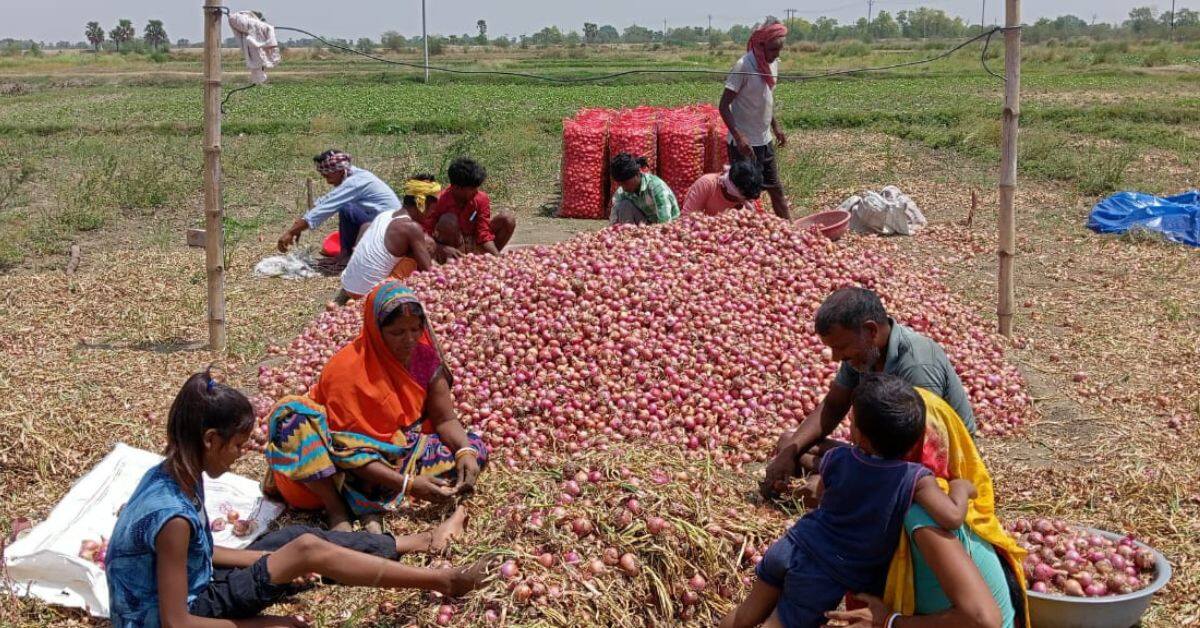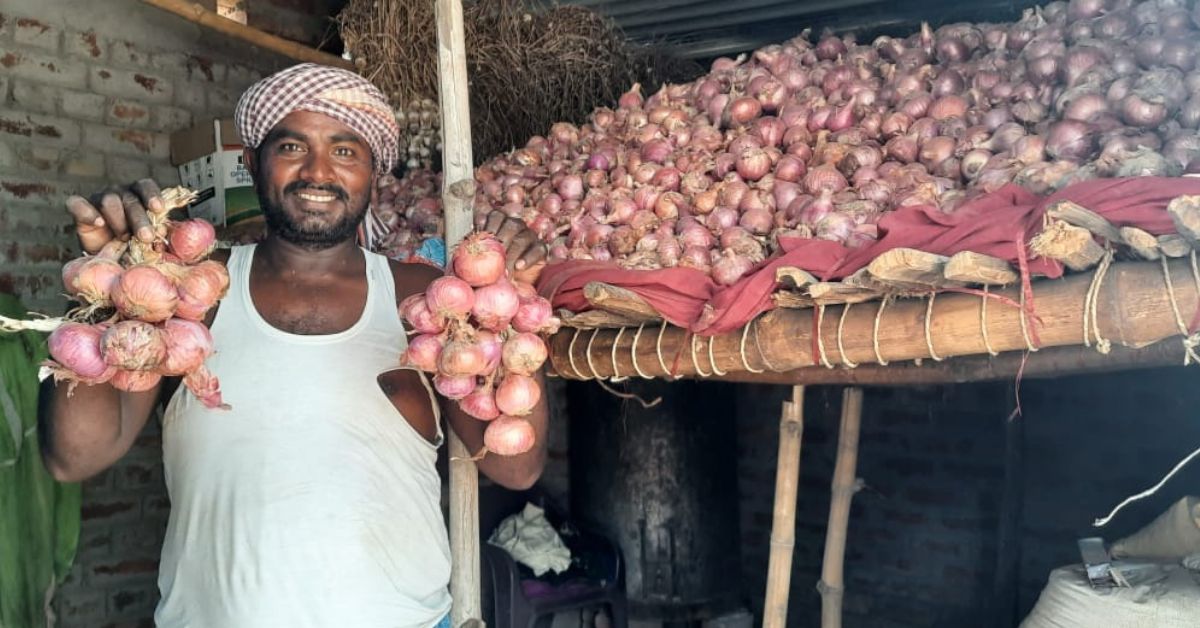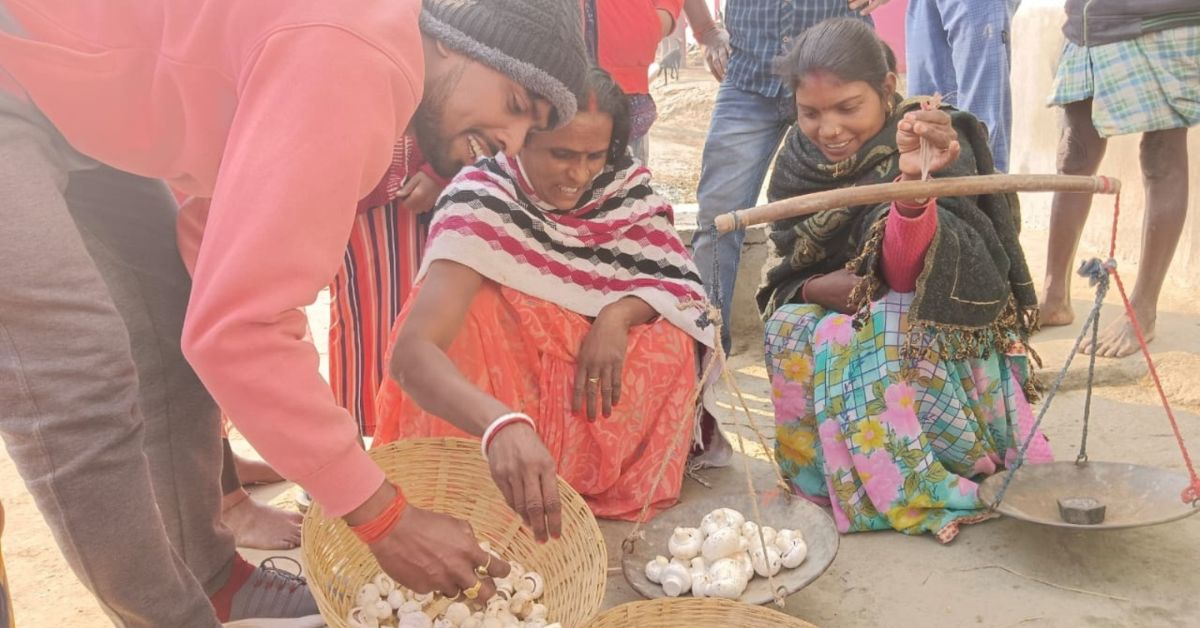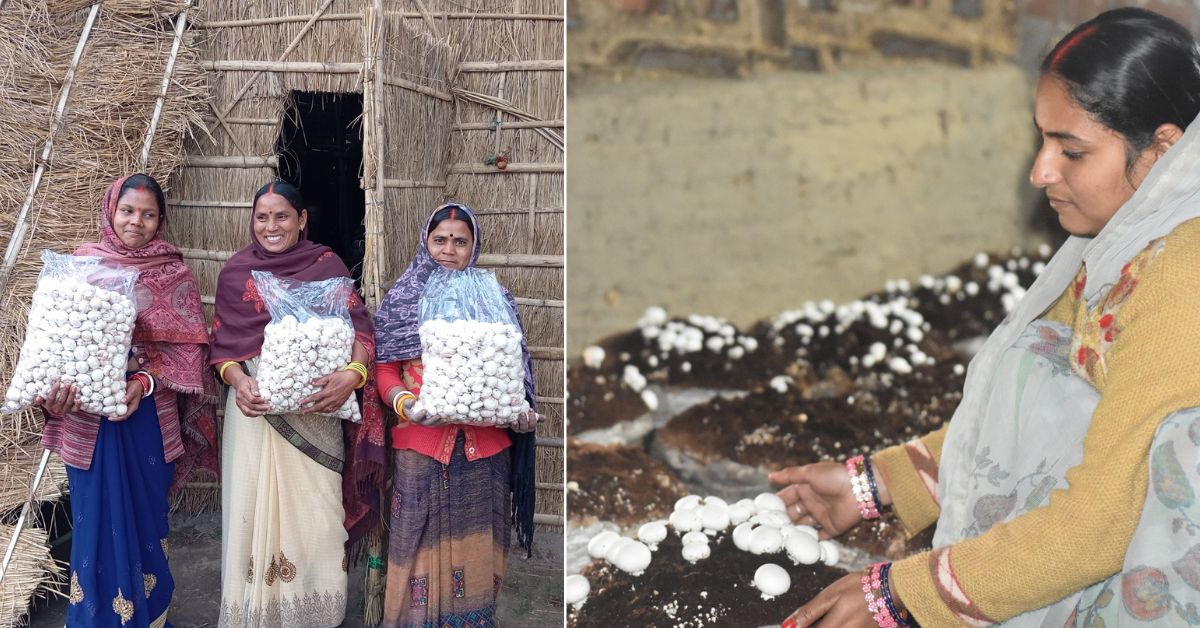Engineer Helps 25000 Farmers Double Their Income By Growing Onions, Mushrooms & Corns
Prabhat Kumar runs SumArth, an NGO that has impacted the lives of 25,000 farmers in 500 villages of Bihar by helping them switch from outdated agricultural practices to new cash crops like onions, mushrooms, and sweet corn.

“Son, do whatever you want to do in life but never become a farmer.”
This was the only career advice that Bihar-based Prabhat Kumar received from his father who was a farmer. Following his instruction, he went on to become an engineer and co-founded a healthcare company that allowed him to travel to at least 25 countries.
“I was winning several accolades and meeting successful people worldwide. But wherever I went, people would recognise my Bihari roots because of my accent. They would immediately shame me for coming from Bihar. Also, most Biharis who become IAS officers or engineers don’t come back to the state. When I got global exposure, people expected the same from me,” he tells The Better India.
“Their words would cause me pain. Although I was not very well-connected with my roots as I went to Jalpaiguri right after school to pursue my higher studies, I wanted to change this notion. More than the individual success, I felt it was high time that I work on the success of my native people instead of just mocking their circumstances,” adds the 35-year-old.

In 2015, Prabhat returned to his hometown in Gaya district and launched SumArth, a non-profit organisation that has impacted the lives of 25,000 farmers in 500 villages across six districts including Gaya, Jehanabad, Arwal, Aurangabad, Nawada, and Nalanda in Bihar.
Coming out of their shells
After coming to Gaya, Prabhat spoke to local farmers and understood the gaps in the industry. “Farmers believe that the kewal (black) soil in the region is not fit for cultivating crops other than paddy and wheat,” he shares.
“Apart from this, they were dependent on dealers for seeds and fertilisers, and middlemen for sales. There was no favourable system in place. After toiling day and night for months, farmers were hardly earning Rs 10,000 from an acre in a year,” he shares.
“The biggest problem that I observed in traditional farming is that farmers have to bear recurring expenses for six months on fertilisers and pesticides, but will get a one-time return if climate conditions are favourable,” he adds.

Owing to the unprofitable farming, Prabhat says his cousins and friends back home would ask him to get them menial jobs in cities. “Despite the long working hours and discomforts of cities, they wanted to move outside Bihar for Rs 5,000- 10,000 monthly jobs as security guards but did not prefer to stay in the village to farm,” he adds.
However, Prabhat was hopeful of reaping benefits from farming and the same kewal soil. “After coming back, I convinced farmers to try horticulture crops and made a deal with them to get them jobs in the cities if we don’t succeed,” he says.
In 2015, Prabhat sent 10 farmers to Maharashtra to understand the potential of horticulture crops. “A single farmer there was earning Rs 15 lakh from an acre of land by growing horticulture crops like pomegranate, grapes, and onions. Contrarily, the entire village here could not imagine earning this amount,” he laughs.
“That day, those farmers learnt how limited they were in terms of trying new crops and adopting farming techniques,” adds Prabhat.
Doubling incomes with cash crops
Filled with new hopes, the overjoyed farmers returned home to adopt horticulture crops.
“They opted for onion cultivation as it is a nonperishable crop and its price increases by four times if you have good storage facilities. I asked the farmers to spare 10 percent of their land to grow onions. Meanwhile, I invested in building a low-cost storage facility with cross ventilation,” explains Prabhat.

After 4-5 months, farmers doubled their income by investing Rs 4 per kg and getting Rs 10 per kg from onions. “Each farmer earned Rs 1 lakh income per acre of land,” he shares.
With the low-cost storage facility, farmers stored onions for six months from May to October in 2016. “But the unit would be vacant for the rest of the time. So, we introduced mushrooms for the utility of that part. It is a winter crop and was a perfect match to utilise our vacant facility in that period,” he says.
Talking about the switch to mushroom cultivation, he says, “Growing mushrooms was completely opposite from traditional agriculture. In conventional farming, farmers bear recurring expenses for one-time income whereas, in mushroom farming, there is a one-time expense to procure the bags and get recurring income daily. That was the need of the Indian agriculture system,” he shares.
Seeing the success of onion farming, 200 farmers joined Prabhat next year in 2017 to grow mushrooms. He informs that currently 2,000 farmers are producing around 600 kg of mushrooms per day whereas 5,000 are reaping benefits by growing onions.

After mushrooms, Prabhat trained farmers to grow seed corn, baby corn, and strawberries which gave immediate results and better income. In 2023, he also set up Gaya’s largest processing unit with a 10,000 kg per day capacity to process crops to increase their shelf life from 24 hours to 24 months.
Talking about his role, Prabhat says, “We provide an end-to-end solution to these farmers by helping them procure inputs, training them to learn new crops, and awareness on seed treatment to prevent future fungal attacks and boost production. We are also providing them with a marketplace to sell their produce.”
Starting with 10 farmers, today Prabhat is associated with 25,000 farmers in 500 villages who earn double by growing crops like onions, mushrooms, baby corn, and sweet corn.
On average, he says the initiative has helped farmers double their income. Interestingly, these farmers have collectively generated an income of Rs 100 crore in the past 10 years and Rs 23 crore in the last financial year.
“It is so satisfying to see the impact. However, I still feel this is not enough. We want to increase farmer income to five times so that we do not lag behind progressive states like Maharashtra. In the coming years, I am planning to achieve this by helping farmers process their produce into value-added products,” he adds.
Edited by Padmashree Pande; All photos: SumArth.
If you found our stories insightful, informative, or even just enjoyable, we invite you to consider making a voluntary payment to support the work we do at The Better India. Your contribution helps us continue producing quality content that educates, inspires, and drives positive change.
Choose one of the payment options below for your contribution-
By paying for the stories you value, you directly contribute to sustaining our efforts focused on making a difference in the world. Together, let's ensure that impactful stories continue to be told and shared, enriching lives and communities alike.
Thank you for your support. Here are some frequently asked questions you might find helpful to know why you are contributing?














